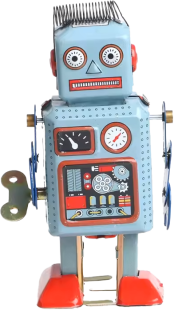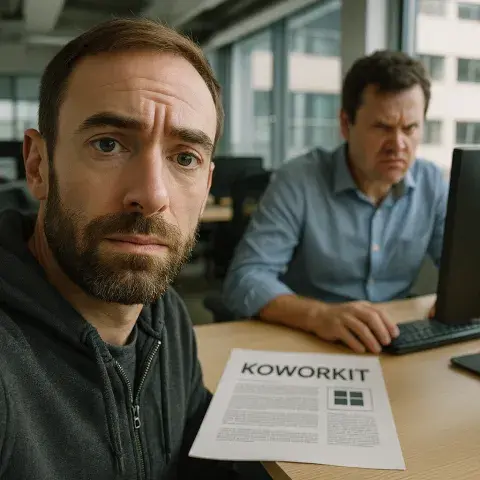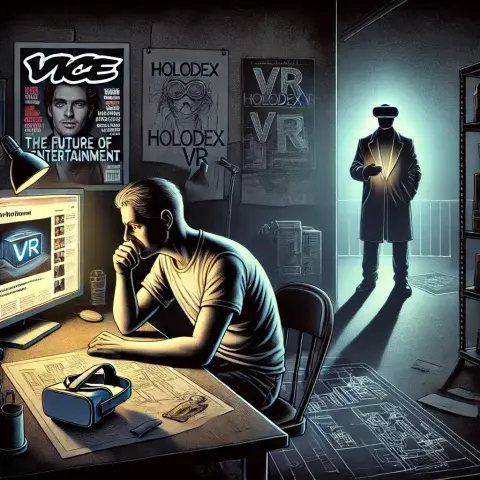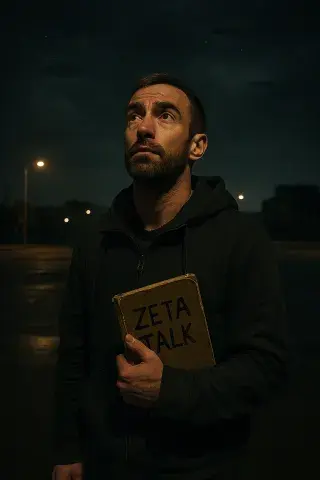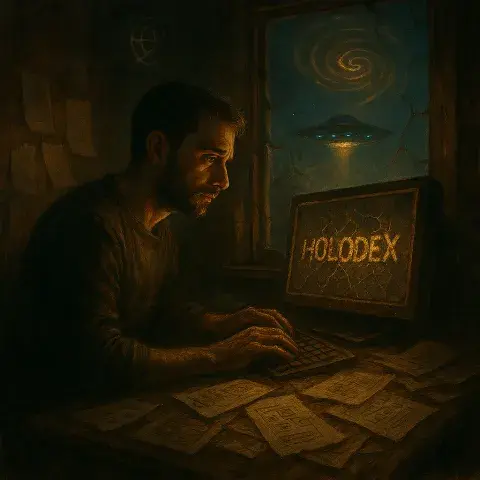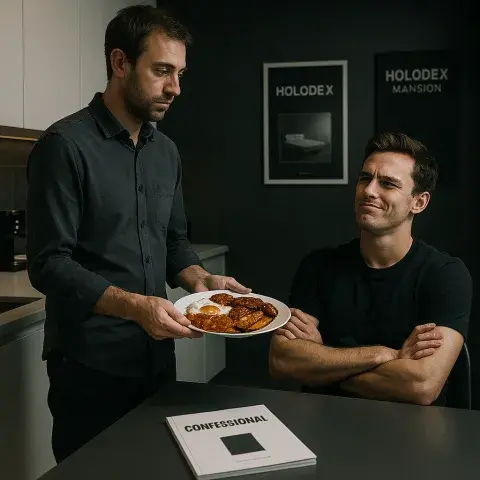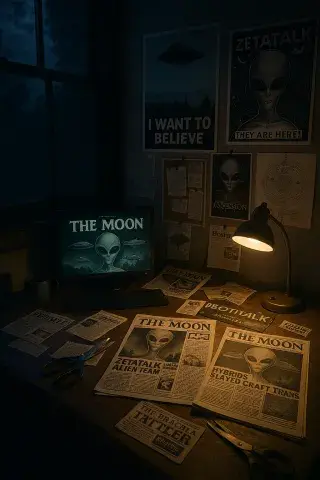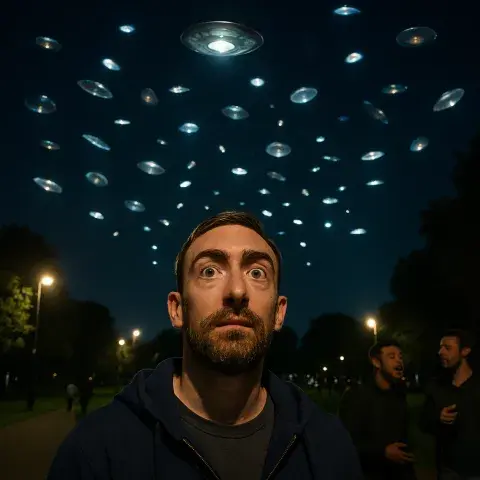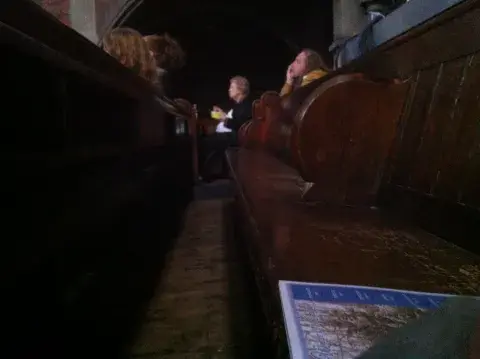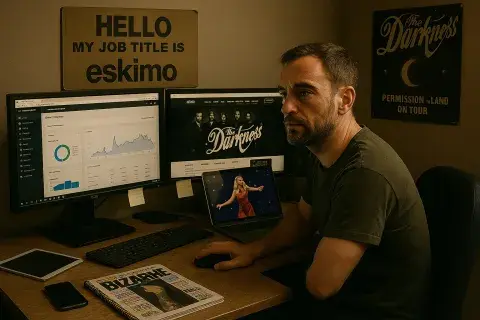Chapter 60 - Center of the Universe
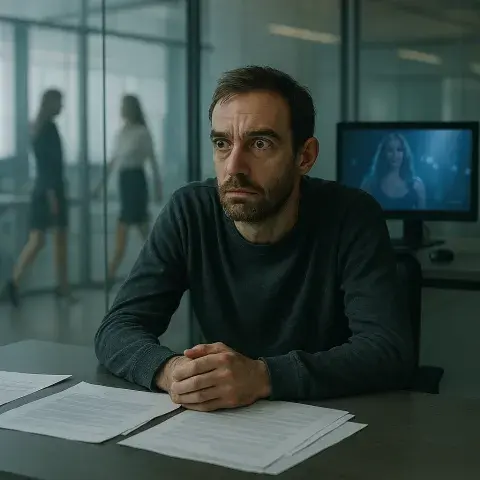
The office in 2019 was a cavernous, empty space—just the two of us in a room big enough for a small army. The silence was deafening, broken only by the occasional clatter of a keyboard or the hum of the air conditioning. But what really set the stage was the glass wall separating us from the care company next door. Every day, a parade of young, beautiful women streamed past on their way to meetings, coffee breaks, or the photocopier. It was like watching a surrealist dance, a "gloomy conga," as the Last Shadow Puppets once sang.
At first, I thought little of it. But then the music videos started triggering something in me, planting seeds of suspicion and unease. Songs that had once been background noise now seemed to align too perfectly with the events of my life. I’d catch a lyric, a visual cue, and feel the strange, electric jolt of recognition. Was it a coincidence, or was there a message buried in it all?
The more I noticed, the more the walls of reality seemed to warp around me. Every glance from a passerby felt loaded, every mundane action like a deliberate clue. I began to question if I was part of something bigger. Something extraordinary. What if... I wasn’t just me? What if I was him—the figure at the center of it all, the one meant to change everything?
The thought burrowed deep. Apocalypse, after all, meant "disclosure." What if I was here to reveal something hidden, to upend the world’s illusions? It sounded insane—I sounded insane—but it didn’t feel that way in the moment. It felt terrifyingly real.
I started to believe the office was being recorded, like a covert Truman Show experiment. Everyone knew who I was, I thought. The care company workers, my colleagues, even strangers on the street. They knew, but they weren’t allowed to acknowledge it. I became convinced that a grand unveiling was just around the corner. Perhaps it would be arranged by someone like Russell Brand—someone who understood what I’d uncovered, who could orchestrate a moment of revelation.
I lived in that twisted reality for months, a swirling maelstrom of paranoia, hope, and fear. Every sound, every glance, every song seemed to carry a hidden meaning. I scrutinised them all, searching for confirmation that I was right.
But deep down, beneath the chaos of my thoughts, was a flicker of awareness that something wasn’t right—not with the world, but with me. Slowly, cracks began to appear in my grand narrative. I started to see how warped my thinking had become, how the mind I’d always trusted had turned on me.
Looking back now, it’s clear how far gone I was. I can laugh at the absurdity of it—me as Jesus, secretly recorded for a cosmic reveal—but at the time, it wasn’t funny. It was exhausting, isolating, and terrifying.
That year taught me more about my mind than I’d ever wanted to know. It showed me how easily reality can fracture, how thin the line is between sense and madness. And it taught me that even when everything feels hopelessly tangled, there’s a way back. But finding it? That’s a story for another day.
The cracks in my delusion didn’t form all at once. They appeared slowly, like hairline fractures in glass, almost imperceptible at first. The paranoia still clung to me like a second skin, and every day felt like walking a tightrope over a chasm.
One moment stands out in particular. It was a Friday afternoon, and the office was silent except for the hum of the coffee machine. I’d just caught myself staring out through the glass wall at the care company’s bustling activity, weaving another absurd theory in my head. One of the girls paused to check her reflection, brushing a stray hair from her face. For a split second, she looked directly at me, and I felt my stomach knot. She knows.
But instead of looking away in awkward embarrassment, I froze, studying her expression. There was nothing there—no sly smile, no knowing wink. Just a tired woman trying to get through her workday. That momentary connection didn’t reveal a grand conspiracy; it shattered part of mine.
The more I examined my beliefs, the more fragile they became. Why would anyone secretly record me? Why would I be at the centre of some cosmic revelation? And Russell Brand? That thought was ridiculous even for me. It felt like pulling at a loose thread in a sweater. The more I tugged, the more the whole thing unraveled.
But breaking free wasn’t clean or simple. My mind was a battlefield. One day, I’d feel like I was clawing my way back to reality, and the next, I’d be swept back into the comforting embrace of the delusion. Because as terrifying as it was to believe I was the centre of some secret universe, it was also intoxicating. It made my life feel important in a way that the mundane, hollow reality of that office never could.
What ultimately pulled me out wasn’t some grand epiphany but the steady drip of small truths. Conversations with my partner, where they reminded me of the projects we were building together. The kindness of strangers who didn’t treat me like I was special or chosen but simply human. Even the music, which once seemed like a divine signal, became just songs again—beautiful, haunting, but nothing more.
I began therapy, reluctantly at first, but it quickly became a lifeline. Talking through my thoughts with someone who didn’t judge me, who didn’t feed into the narrative, gave me space to see things for what they were. I started to find the strength to question myself, to dig into the root of why I needed to feel so important in the first place.
The process was messy and painful, but it was also liberating. By the time I fully stepped back into reality, I felt like I’d been through a war and survived. I wasn’t the same person who’d walked into that empty office at the start of 2019. That person was fractured, desperate for meaning, grasping at anything that made the world seem less cruel. The person who emerged was scarred but whole, with a newfound respect for the fragility of the mind—and the strength it takes to rebuild.
Now, when I look back at that time, I can’t help but cringe at how far gone I was.
I still catch myself overthinking sometimes, spinning wild theories about the world. But now, I know when to stop, when to laugh at myself, and when to reach out for help if I need it. That year didn’t break me; it rebuilt me into someone stronger, someone who knows that even when the mind turns against you, there’s a way back. And that’s a truth worth holding onto.

